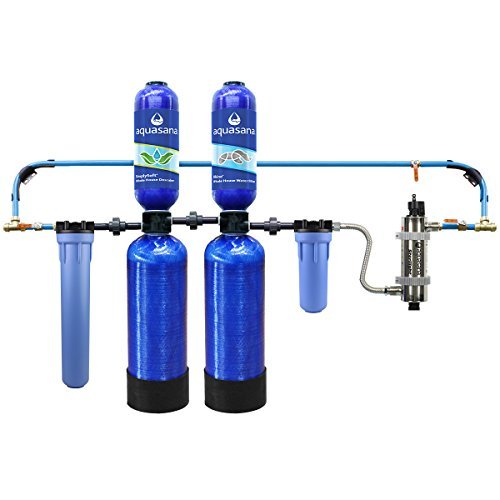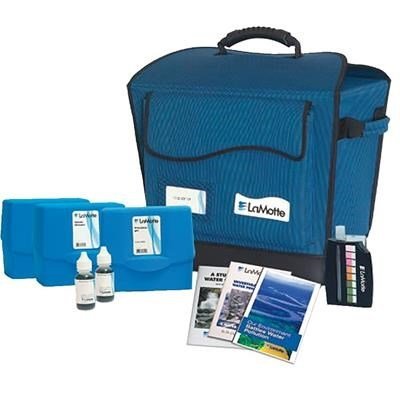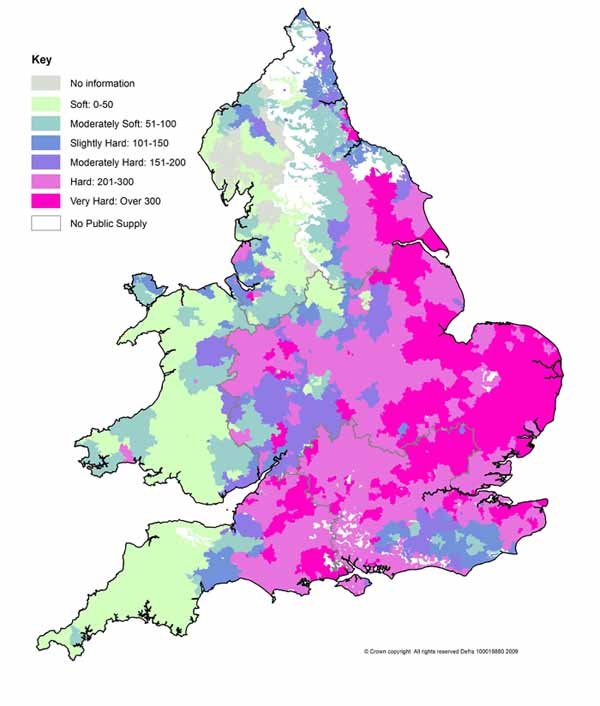Why Hard Water Is BIG PROBLEM (and What To Do About It)

Limescale is the white stains you find around your sink, faucet, kettle and bathtub. Do you know that around 90% of the US suffer from hard water according to The U.S. Geological Survey?
The situation is almost as bad in other parts of the world like Europe. For instance, around 13 million homes in the UK suffer from heavy limescale because of water hardness.
All of this is because of the type of water that is supplied to the home. And a lot of this is down to the water available in your geological location. For instance, living near certain types of rock will determine the kind of water you get.
Water hardness is not necessarily how water appears in its natural form. For instance, do you know that rainwater is soft (not hard) in its natural form?
It only becomes "hard" when it comes into contact with other elements like the ground, chalk, limestone and rock - that its state can change. It is this contact that makes rain water pick up minerals like magnesium and calcium, which is the cause of "hard" water.
This article will help you understand why hard water is a problem and what you can do about it.
[toc]
What Is Hard Water?
How Is Hard Water Formed?
Hard water is formed when magnesium and calcium ions are dissolved in water.
If the hardness is temporary then this will be due to dissolved calcium hydrogencarbonate and this can easily be removed by boiling it. Permanent water hardness is due to dissolved calcium sulfate that you can't simply remove by boiling.
Temporary Hard Water
If your hard water only contains calcium hydrogencarbonate (instead of calcium sulfate) then it is temporary hard-water. "Temporary" because you can easily remove calcium hydrogencarbonate by boiling it unlike other forms of water hardness.
Examples Of Hard Water
"Hard water" is water that is high in calcium and magnesium. Clean rainwater is naturally soft but becomes an example of hard water when it comes into contact with things like rock, chalk and limestone.
Types Of Hard Water
What Is Soft Water?
Soft water is literally the opposite of hard water in that it doesn't contain high levels of calcium and magnesium. In some ways, soft water is actually more natural than water that is hard in the sense that things like rainwater are naturally soft.
Despite this, you shouldn't drink soft water that has been softened with sodium salt. Read why this is the case here: What is Soft Water and Why You Should NEVER Drink It!
Is It Safe To Drink Hard Water?
Is hard water safe to drink? Technically, yes.
Consuming small amounts of magnesium and calcium should not cause you any harm. Especially if the rest of the water is clean and free of any harmful contaminants.
The real issue of hardness in water is the effect and nuisance it causes for your home appliances and plumbing. This is through things like mineral buildup and the potential for clogging up or blocking pipes.
[easyazon_link identifier="B075RJ7KBR" locale="US" tag="easyazon061-20"]Water Hardness Test Kit[/easyazon_link]
Advantages of Hard Water
- As this form of water contains dissolved calcium, it may (at least in theory) be a source of calcium. However, the available calcium in "hard" water is probably not enough to compete with calcium rich foods like leafy vegetables.
- Better taste. Yes this might sound weird but some people actually like the taste of water that is hard.
- You can drink water that is hard without any health risks, unlike soft water (particularly that which has been softened with salt), which you should never drink.
- There are also unconfirmed reports of fewer heart attacks in locations with lots of hard water. It is not clear whether this is as a result of casualty or correlation.
Disadvantages of Hard Water
- The biggest issue with hardness in water is by far the limescale buildup in your pipes and home appliances.
- You may find that you use more soap because it takes longer to lather, which can be both time consuming and expensive in the long term.
- The limescale it leaves can make your appliances and machines work less efficiently.
Hard Water Areas UK
Unfortunately, the UK is heavily affected with hard water due to its geographic location. About 13 million homes in the UK live in hard water areas.
You can check the water areas UK map and see if your neighbourhood is one of the affected areas.
Another way to check water hardness is to get a [easyazon_link identifier="B00LVCXSNW" locale="US" tag="easyazon061-20"]good quality water hardness testing kit[/easyazon_link]. It is possible to get a cheap kit but they might not work as well to get you an accurate reading.
Also, remember that you measure water hardness by looking at the number of mineral deposits in your water by ppm, which is parts per million.
Hardness in water is anything more than 180ppm, while anything less than 60ppm can be considered to be soft water.
How To Get Rid of Hard Water?
While hard water from your tap in a western country is usually safe to drink. It can wreck havoc on your pipes, plumbing and appliances.
So here is how to get rid of it: soften your water. The easiest way to do this is to use a water softener machine.
It softens water without using salt or sodium. This is ideal for people who want to consume less sodium in their diet.
Original article: www.mrwatergeek.com/hard-water/





#life
Wayne Gretzky:You miss 100% of the shots you don’t take.Thanks for stopping by and leaving a comment :) :) I'll be sure to check out your posts too!
Luke
Mr Water Geek
nice ideal. thanks for post
Thanks for stopping by and leaving a comment :) :) I'll be sure to check out your posts too!
Luke
Mr Water Geek
good information! Thanks for posting it! Good day!👍
Thanks for stopping by and leaving a comment :) :) I'll be sure to check out your posts too!
Luke
Mr Water Geek
You're welcome @mrwatergeek! 😀